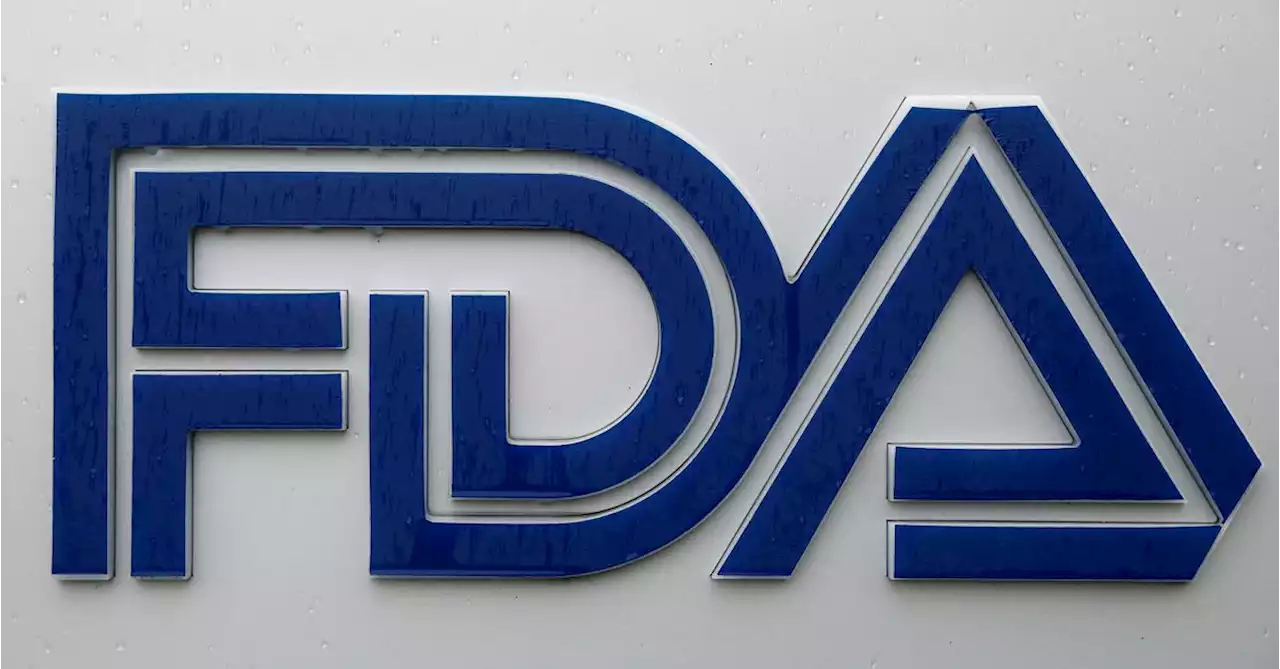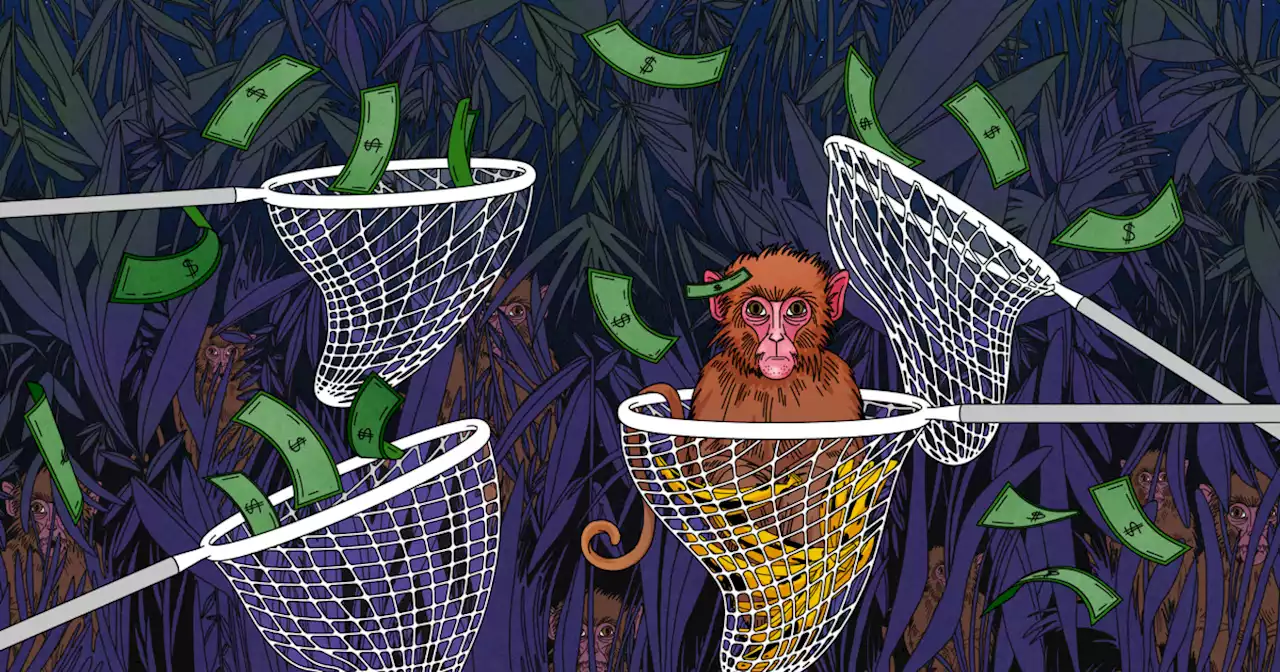The arrival of the pandemic and the race to find a vaccine increased the demand for laboratory monkeys. It fueled a spike in poaching and contributed to the endangerment of the species most commonly used in drug studies — the long-tailed macaque.
The U.S. leads the world in the number of primates it imports for medical research. Between 2017 and May, more than 150,000 monkeys arrived in the U.S. to be used in experiments, according to figures from the Centers for Disease Control and Prevention.
"It’s inconceivable to me how high it went," said Greg Westergaard, the founder and CEO of Alpha Genesis, a South Carolina-based company that breeds and sources monkeys for pharmaceutical companies and government researchers.Cambodia is home to a number of macaque breeding farms, but they receive little scrutiny and the paperwork that accompanies monkeys imported to the U.S.
A macaque in Cambodia. Earlier this year, long-tailed macaques and pig-tailed macaques were listed as endangered species by the International Union for Conservation of Nature.A colony with 100 females of breeding age would produce at most 60 to 70 offspring in a given year, Westergaard said. He noted that it would take another two to three years for the baby monkeys to reach an age where they’re suitable for research.
"This species will be going extinct or functionally extinct by the end of the 21st century if we don’t change anything right now," said Agustín Fuentes, a Princeton University biological anthropologist.Between 2019 and 2021, the number of monkeys found dead on arrival in the U.S. or that died within 30 days rose sharply — from 77 to 136 — despite there being 2,000 fewer imported monkeys overall, according to CDC data obtained by NBC News through a public records request.
CITES determines, for instance, how many protected animals a country is allowed to export. It can also bar a country from exporting animals like long-tailed macaques, as it did for Laos in 2016 after investigations found that traders there were selling monkeys caught in the wild to dealers in China, Vietnam and Cambodia who were exporting the animals to other countries falsely labeled as originating in their own.
Newcomer, the retired agent, said he realized how difficult it would be to build a case against monkey import companies when he was tasked with developing sources at an industry event many years ago. Vanny Bio Research is a Cambodian breeding center for long-tailed macaques. In November, the DOJ charged six Vanny employees and two Cambodian government officials with illegally exporting wild-caught monkeys to the U.S.One of the Cambodian officials charged in the indictment unsealed last month is accused of personally delivering monkeys caught in the wild to a facility run by Vanny Resources Holdings, a Hong Kong-based company that breeds monkeys for research.
The reports would provide prosecutors with a"true picture of the various facilities, which it believes are in fact laundering and illegally marketing in the world market captured animals — animals taken illegally from the wild under the treaties and under U.S. law and sent to the U.S. with false documentation," Assistant U.S. Attorney Thomas Watts-Fitzgerald said at Tucker’s sentencing in October 2021, according to a transcript of the hearing.
The U.S. government operates seven primate centers that house about 21,000 macaques, baboons and other species. The animals are then loaded into unmarked vans and driven to quarantine facilities that are sometimes hundreds of miles away. The monkeys must remain at the quarantine facilities for 31 days, where they are tested for a range of illnesses, including tuberculosis and herpes B.
"I was in shock — I just couldn’t believe it was transporting monkeys," she said."The cages did not say anything about there being dangerous animals inside or ones that you could get sick from."The incident shined a rare spotlight on the monkey trade, which largely goes on outside the view of the public.
Brasil Últimas Notícias, Brasil Manchetes
Similar News:Você também pode ler notícias semelhantes a esta que coletamos de outras fontes de notícias.
 U.S. FDA advisers to weigh on updating initial COVID vaccine dosesThe U.S. Food and Drug Administration (FDA) said on Friday it planned to hold a meeting of outside experts next month to discuss whether initial doses of COVID-19 vaccines need to be updated to combat circulating variants.
U.S. FDA advisers to weigh on updating initial COVID vaccine dosesThe U.S. Food and Drug Administration (FDA) said on Friday it planned to hold a meeting of outside experts next month to discuss whether initial doses of COVID-19 vaccines need to be updated to combat circulating variants.
Consulte Mais informação »
 Fauci Responds to Musk’s Twitter Attack and Rates World’s COVID ResponsePublic health leader Anthony Fauci advises early-career researchers “not to be deterred” by vitriol
Fauci Responds to Musk’s Twitter Attack and Rates World’s COVID ResponsePublic health leader Anthony Fauci advises early-career researchers “not to be deterred” by vitriol
Consulte Mais informação »
 What is Title 42, the COVID border policy used to expel migrants?Title 42 allows U.S. border officials to quickly expel migrants and asylum-seekers on public health grounds.
What is Title 42, the COVID border policy used to expel migrants?Title 42 allows U.S. border officials to quickly expel migrants and asylum-seekers on public health grounds.
Consulte Mais informação »
 California changing pay requirement for workers with COVID-19California regulators voted Thursday to end a rule requiring companies to pay employees who can't work because they got infected with COVID-19 while on the job.
California changing pay requirement for workers with COVID-19California regulators voted Thursday to end a rule requiring companies to pay employees who can't work because they got infected with COVID-19 while on the job.
Consulte Mais informação »
 California to end mandatory pay for workers with COVIDCalifornia will stop making companies pay employees who can't work because they caught the coronavirus while on the job.
California to end mandatory pay for workers with COVIDCalifornia will stop making companies pay employees who can't work because they caught the coronavirus while on the job.
Consulte Mais informação »
 Updated booster shot prevents a majority of Covid hospitalizations in older adultsThe updated Covid booster shot is proving to be effective at keeping people — especially older adults — out of the hospital, according to two new studies published by the CDC.
Updated booster shot prevents a majority of Covid hospitalizations in older adultsThe updated Covid booster shot is proving to be effective at keeping people — especially older adults — out of the hospital, according to two new studies published by the CDC.
Consulte Mais informação »
